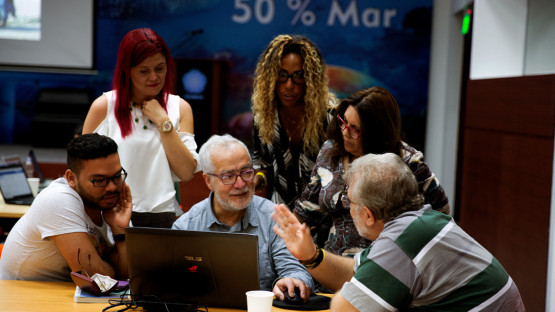Santa Marta, Colombia — Policymakers may not have the time to sift through scientific papers or 30 000 data samples on the ocean’s health. That’s why marine scientists using nuclear-derived techniques and communication experts from Latin America and the Caribbean teamed up earlier this month to repackage scientific findings for policymakers. The aim, with the support of the IAEA, was to raise awareness of threats to the ocean and help decision makers in the region take evidence-based policy action.
In the workshop, held in Santa Marta, Colombia, more than 20 marine scientists and communication experts worked side by side to create five easy-to-digest advocacy products that explain the role of nuclear science in monitoring the marine environment. Together they form REMARCO, a network in science and communication that connects 14 countries in the region.
“Scientific reports are not always easy to digest and scientific papers are published in very specialized channels, which is why a lot of relevant results don’t make it to policy makers,” said Magali Zapata Cazier, programme management officer at the IAEA’s technical cooperation programme. “The aim of this workshop and of REMARCO is exactly that: to help scientists communicate their results outside the scientific sphere, and this way create the necessary awareness to influence decision taking.”
The network was established in 2016 to connect these countries in the face of shared challenges in their marine and coastal environments: marine pollution, ocean acidification, harmful algal blooms and microplastics. With the support of the IAEA’s technical cooperation programme, scientists from the network use nuclear-derived techniques to monitor these phenomena and come up with appropriate remediation or mitigation proposals.
It is in these kinds of meetings that we learn how to translate our technical language into something that is understood outside the world of science.








